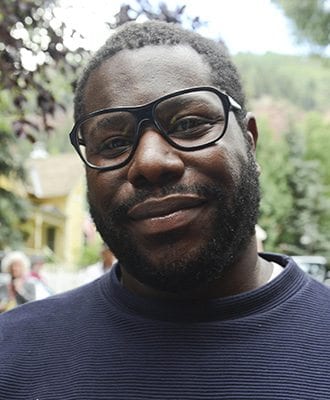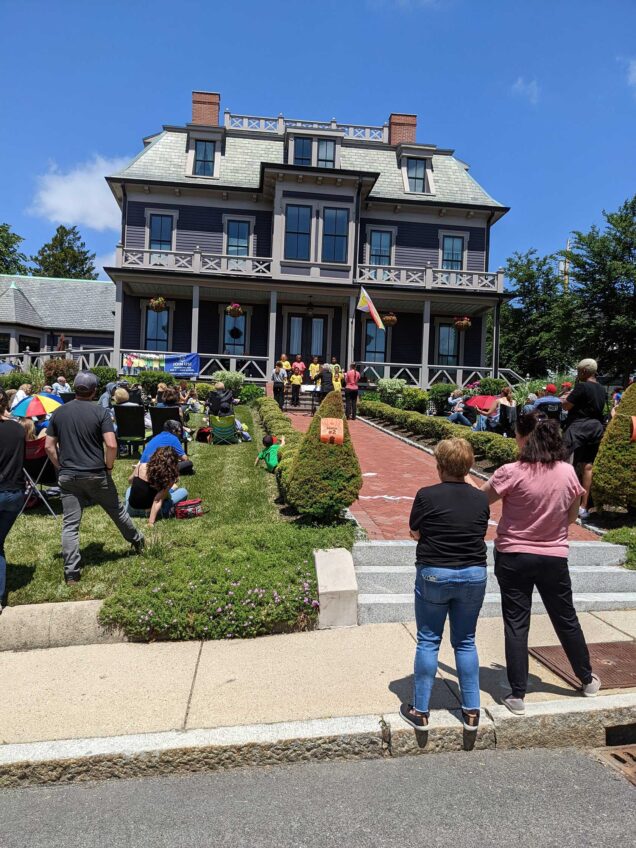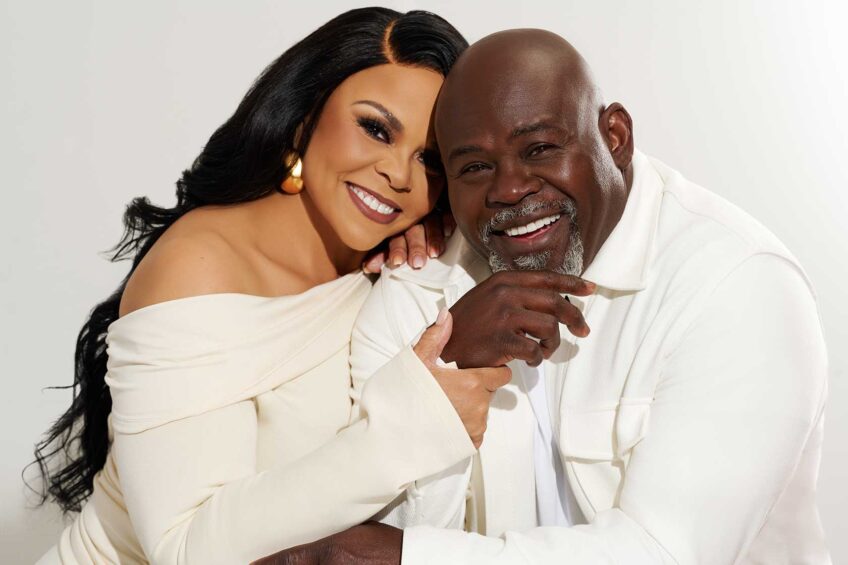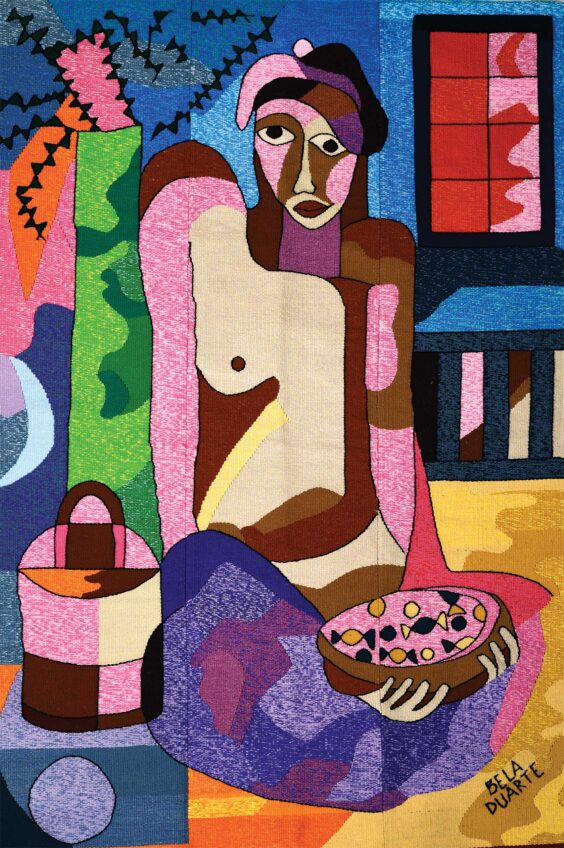

Chiwetel Ejrofor (3rd from right) as Solomon Northrup in “12 Years as a Slave.”
Artist and filmmaker Steven Rodney McQueen was born in London on Oct. 9, 1969. His critically acclaimed directorial debut, “Hunger,” won the Camera d’Or at the 2008 Cannes Film Festival. He followed that up with the incendiary offering “Shame,” a well-received, thought-provoking drama about addiction and secrecy in the modern world.
In 1996, McQueen was the recipient of an ICA Futures Award. A couple of years later, he won a DAAD artist’s scholarship to Berlin. Besides exhibiting at the ICA and at the Kunsthalle in Zürich, he also won the coveted Turner Prize. He has exhibited at the Art Institute of Chicago, the Musee d’Art Moderne de la Ville de Paris, Documenta, and at the 53rd Venice Biennale as a representative of Great Britain.
His artwork can be found in museum collections around the world, such as the Tate, the Museum of Modern Art, and the Centre Pompidou. In 2003, he was appointed Official War Artist for the Iraq War by the Imperial War Museum and he subsequently produced the poignant and controversial project “Queen and Country,” commemorating the deaths of British soldiers who perished in the conflict by presenting their portraits as a sheet of stamps.
Steve and his wife, cultural critic Bianca Stigter, live and work in Amsterdam, which is where they are raising their son, Dexter, and daughter, Alex. Here, he talks about his latest film, “12 Years a Slave,” which recently won the People’s Choice Awards for Best Film and Best Director at the Toronto Film Festival.
All three of your feature films — this new one, and “Hunger” and “Shame” as well — are so different from each other and yet quite remarkable and memorable, each in their own way.
Thank you. Well, I do my best. I’m just happy that people are responding to the films as positively as they are. To be honest with you, it’s one of those things where we’re just happy to get them made. When you get to make something, you always hope people will go and see it. And we’re very, very pleased by the response to “12 Years a Slave.” It’s kind of humbling and remarkable.
Your work reminds me of Ang Lee’s in terms of its quality and versatility, in the way that his movies are each phenomenal yet so very different from each other.
Wow! That’s a huge compliment. What can I say? He’s a master. Ang Lee is a person I really admire and look up to. I love so many of his films, especially “Ride with the Devil,” “Sense and Sensibility,” and “The Ice Storm.”
What does it mean to you to be in charge of adapting Solomon Northup’s memoir? How do you explain that his autobiography was buried for around 100 years, as opposed to those of some of his contemporaries, such as Frederick Douglass?
I feel tremendously honored but I also feel a tremendous responsibility because, through this film, we can bring Solomon Northrup’s memory to the surface. His story was buried for so long. When the book first came out in 1853, it was a phenomenal best-seller for its time and sold 27,000 copies in 18 months.
But what happened was “Uncle Tom’s Cabin” was published the following year, and that was it for “12 Years a Slave.” It fell into obscurity. Academics knew about the memoir but it otherwise became lost. To me, it was always like the American equivalent of “The Diary of Anne Frank.” That’s why it became my passion to get this film made.

Filmmaker Steven Rodney McQueen at the Toronto Film Festival.
In a film described as a historical drama, how do you establish a healthy balance between history and drama?
By relying on the book. As a filmmaker I was interested in illustrating the history of what slavery was about, which was slave labor. In the background of one frame, for example, you see sugar cane. In the second plantation, you see logging. And on the third location, we see corn. So, at the same time you’re following Solomon’s adventure of trying to get home, in the background you simultaneously see the horrors and pains of what slavery was about.
Do you feel that the great success of “Django Unchained” improves your very visceral film’s chances for a warm reception?
I think that film was very helpful, of course, in making people aware by getting the subject matter on film. So, I couldn’t say it didn’t help.
What interested you as a Brit in an African American story?
The story’s not just an African American story. It’s a universal story. It’s a world story. My parents are from the West Indies. My father’s from Grenada, which is where Malcolm X’s mother was born. My mother was born in Trinidad, which is where Stokely Carmichael, the man who coined the phrase “Black Power!”, was born. Sidney Poitier was born in the Bahamas. I’m part of that diaspora of people displaced by the slave trades. I’m part of that family. It’s our story. It’s a global story.
How did you settle on Chiwetel Ejiofor as Solomon Northrup?
Chiwetel was always the one I wanted to make the movie with because there’s a certain humanity and gentility about him that I needed for the lead role. Solomon was a person who maintained his humanity whatever his circumstances, and I needed someone of that same caliber, because he would be tested to the breaking point. I needed an actor who could hold up during those moments of extreme stress.
Why did you use the great Michael Fassbender in each of your films?
I think Michael is the most influential actor of his generation. He’s like a Mickey Rourke or a Gary Oldman. People want to be him. Actors want to act with him. Students choose to pursue acting because of him. I was very fortunate to land him for “Hunger.” We’ve been close friends ever since. He’s an amazing actor I will always want to work with.
How did you assemble such a top-flight cast: Benedict Cumberbatch, Paul
Giamatti, Brad Pitt, Quvenzhane Wallis, Paaul Dano and newcomer Lupita Nyong’o?
I had huge help from the casting director, Francine Maisler. She did an incredible job. We auditioned over a thousand girls for the role of Patsey. And we ended up with Lupita, who hadn’t even graduated from acting school yet. But she auditioned for us, and that was it. A star was born!
When you look in the mirror, what do you see?
I see all the lines in my face from tiredness.
What was your best career decision?
Meeting my wife.
How did your first big heartbreak impact who you are as a person?
I learned that life is a long and difficult road, but you have to keep going, or you’ll fall by the wayside.
Is there something that you promised to do if you became famous that you still haven’t done yet?
Am I famous?
How do you want to be remembered?
As a person who tried.






